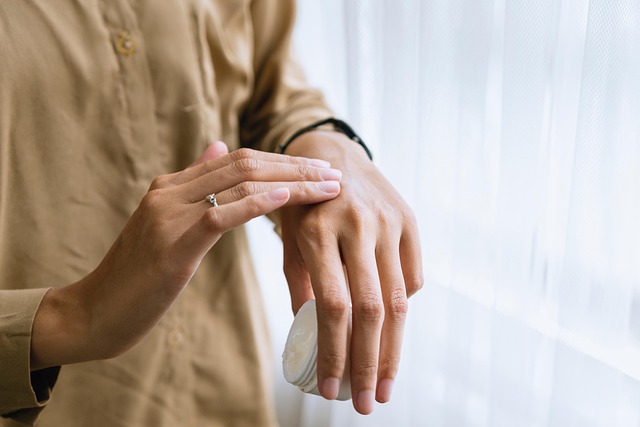Understanding Hair Care: Treatments, Products, and Maintenance
Maintaining healthy, vibrant hair requires more than occasional washing. From choosing the right products to understanding professional treatments, proper hair care involves a combination of knowledge, consistency, and personalized approaches. Whether you're dealing with dryness, damage, or simply want to enhance your hair's natural beauty, understanding the fundamentals of hair care can transform your daily routine and long-term hair health.

Hair is often considered a reflection of overall health and personal style. Yet many people struggle to find the right balance between maintaining their hair’s natural vitality and addressing specific concerns like damage, thinning, or dryness. The hair care industry offers countless products and services, making it essential to understand what truly works for your unique hair type and lifestyle.
Every strand of hair is composed of protein, primarily keratin, and requires proper nourishment to maintain strength and shine. Factors like environmental exposure, heat styling, chemical treatments, and even diet can significantly impact hair health. Developing an effective hair care routine begins with understanding your hair’s specific needs and selecting appropriate products and treatments.
What Are Common Hair Care Treatment Options?
Hair care treatments range from simple at-home conditioning masks to advanced professional procedures designed to repair damage and restore vitality. Deep conditioning treatments penetrate the hair shaft to provide intensive moisture and repair, making them ideal for dry or chemically treated hair. Protein treatments strengthen weakened strands by replenishing lost proteins, particularly beneficial after bleaching or heat damage.
Keratin treatments have gained popularity for their ability to smooth frizz and create sleeker, more manageable hair. These treatments temporarily alter the hair structure, reducing styling time and improving overall appearance. Scalp treatments address the foundation of hair health by promoting circulation, removing buildup, and creating an optimal environment for hair growth.
Oil treatments using natural ingredients like argan, coconut, or jojoba oil provide deep nourishment and protection. These treatments can be customized based on hair porosity and specific concerns, offering versatility for various hair types.
How Does Professional Hair Care Differ From Home Care?
Professional hair care services provide expertise, specialized products, and equipment not typically available for home use. Licensed stylists and trichologists can assess hair condition, identify underlying issues, and recommend targeted treatments. Professional-grade products often contain higher concentrations of active ingredients, delivering more noticeable results than consumer products.
Salon treatments like glossing, bonding treatments, and scalp therapy require technical knowledge and precision application. Professionals can customize formulations based on individual hair analysis, considering factors like porosity, texture, and damage level. Regular professional consultations help track progress and adjust treatments as hair needs change over time.
Home care routines complement professional treatments by maintaining results between salon visits. Quality shampoos, conditioners, and styling products formulated for specific hair types help preserve treatment benefits. Consistency in home care practices significantly extends the longevity of professional services.
What Should You Consider When Choosing Hair Care Products?
Selecting appropriate hair care products requires understanding your hair type, texture, and specific concerns. Fine hair benefits from lightweight, volumizing formulas that won’t weigh down strands, while thick or coarse hair needs richer, more moisturizing products. Curly hair typically requires extra hydration and frizz control, whereas straight hair may need products that add body and prevent oiliness.
Ingredient awareness has become increasingly important as consumers seek cleaner, more sustainable options. Sulfate-free shampoos preserve natural oils and reduce irritation, while silicone-free conditioners prevent buildup. Natural ingredients like botanical extracts, essential oils, and plant-based proteins offer effective alternatives to synthetic compounds.
Color-treated hair demands specialized products designed to protect color molecules and prevent fading. UV filters, antioxidants, and color-depositing formulas help maintain vibrancy between salon visits. pH-balanced products support the hair cuticle’s natural structure, promoting shine and reducing damage.
How Much Do Hair Care Treatments and Products Cost?
Hair care expenses vary widely depending on service type, product quality, and location. Understanding typical pricing helps budget for both routine maintenance and specialized treatments. Basic salon services like cuts and standard coloring typically range from 50 to 150 dollars, while advanced treatments command higher prices.
Professional treatments such as keratin smoothing, bonding repairs, and intensive conditioning can cost between 150 and 400 dollars depending on hair length and salon reputation. These treatments often last several months, making them worthwhile investments for those seeking long-term results. At-home professional-grade products generally range from 20 to 60 dollars per item, with treatment masks and specialized serums at the higher end.
Drugstore products offer more budget-friendly options, typically priced between 5 and 20 dollars. While less expensive, these products may require more frequent application or larger quantities to achieve similar results to professional formulations.
| Service/Product Type | Provider/Brand Example | Cost Estimation |
|---|---|---|
| Deep Conditioning Treatment | Professional Salon | 50-100 dollars |
| Keratin Smoothing Treatment | Professional Salon | 200-400 dollars |
| Professional Shampoo/Conditioner | Salon Retail | 25-45 dollars each |
| Drugstore Shampoo/Conditioner | Retail Store | 6-15 dollars each |
| Hair Mask Treatment | Professional Brand | 30-60 dollars |
| Scalp Treatment Service | Specialized Salon | 75-150 dollars |
Prices, rates, or cost estimates mentioned in this article are based on the latest available information but may change over time. Independent research is advised before making financial decisions.
How Often Should You Wash and Treat Your Hair?
Washing frequency depends on hair type, scalp condition, and lifestyle factors. Oily hair may require daily or every-other-day washing, while dry or curly hair often benefits from less frequent washing, perhaps twice weekly. Overwashing strips natural oils, leading to dryness and potential scalp irritation, while underwashing can cause buildup and scalp issues.
Deep conditioning treatments should be incorporated weekly or biweekly for damaged or chemically treated hair, and monthly for healthy hair maintenance. Professional treatments are typically recommended every 8 to 12 weeks, though this varies based on treatment type and individual needs.
Heat styling should be minimized to prevent cumulative damage. When heat tools are necessary, always use heat protectant products and the lowest effective temperature setting. Regular trims every 6 to 8 weeks prevent split ends from traveling up the hair shaft, maintaining overall hair health.
What Are Essential Hair Care Practices for Long-Term Health?
Building sustainable hair care habits ensures lasting results and prevents common problems. Gentle handling reduces mechanical damage—use wide-tooth combs on wet hair and avoid aggressive brushing. Protective hairstyles minimize exposure to environmental stressors and reduce manipulation.
Nutrition plays a crucial role in hair health. Adequate protein intake, vitamins like biotin and vitamin E, and minerals such as iron and zinc support hair growth and strength from within. Hydration affects hair moisture levels, making sufficient water intake important for overall hair condition.
Sleep on silk or satin pillowcases to reduce friction and prevent breakage. Protect hair from chlorine and saltwater by wetting it with clean water before swimming and using leave-in conditioners as barriers. UV protection through hats or UV-filtering hair products prevents sun damage and color fading.
Understanding hair care fundamentals empowers you to make informed decisions about products and treatments. Whether investing in professional services or building an effective home routine, consistent care tailored to your specific needs yields the best results. Healthy hair reflects not just external care but overall wellness, making hair care an integral part of self-care and personal presentation.




